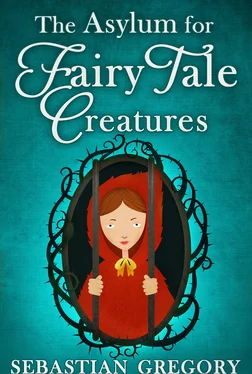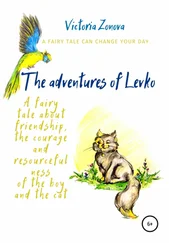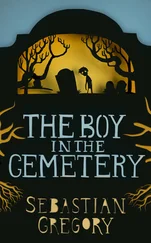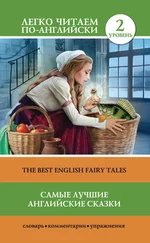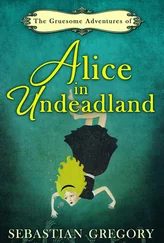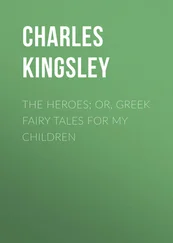“My, Grandma—” she shuddered “—what big eyes you have.”
“All the better to see you with,” Grandma growled through a mouth that was no longer just gums, but instead two neat rows of white sliced teeth that even in the dark shined like razor-sharp pearls.
The girl recoiled taking a step backwards as Grandma rose to the ceiling; or rather the beast did, freeing itself from the suit of skin with a wet slurp. It stood on hind legs, lifting a huge girth of a body and arms that ended in claws. From toe to head that broke the ceiling, covered in a dark, dark black coarse pelt.
“All the better to eat you with.” Its breath reeked of rotten meat and spittle.
The girl ran; she was through the doorway just before fur and death splintered the wood. She fell forward, franticly crawling in the dark as the strength left her legs. Behind her the beast casually padded on the floor. The creature’s lungs pumped hot breath and a constant growl.
The girl found herself in the pantry, crawling over something wet and soft. She could see from what little light broke through holes in the roof that before her lay Grandma. She had been peeled. Gasping so as not to scream, the girl pulled herself up on to the stove, where a still-boiling pot of steaming stew sat. atop.. It was hot and heavy as the girl gripped the handle in both hands, spilling the contents of meat and vegetable and scalding herself. She kept the pain inside just as a low rumbling rippled her hair. She turned, swinging her arms, spraying the boiling pot in the direction of the growl… Outside the peace of the forest erupted with a howl and the nested birds took flight.
The morning mists swirled from the nearby foliage and gently covered the village. The crows called from nests in thatches. A farmer led a cow to market while a bell swung from its fatty neck. Some of the older women took buckets to the well in the centre of the village where all of the mudded lanes met. The children arrived before chores, to run in the swirl and chase loose chickens. A gang of four children were tormenting a small brood. One particular strong-willed fowl broke away, as did a small boy determined to whack the squawking thing with a stick. It ran on idiot legs to the outskirts, quickly followed by the boy swinging away. Just as the boy was about to brain the poor creature, he stopped in his tracks. The stick fell into the mud and his eyes and mouth were opened as wide as they had ever done. There she was, a figure slowly wandering from the mist, injured in body and spirit. She passed the boy without noticing his existence. The boy could not take his eyes off the bloodied girl. The girl’s mother, who resembled something between a woman and a ghost, came from her cottage as if drawn by an invisible force and found herself facing her daughter. A whispering crowd had formed and she parted the group with their worried glances. The girl fell to her knees, exhausted; her riding cloak was wrapped around her, matted with blood.
“Mother,” the girl said, pleading with a barely audible cry.
“What did you do?” the mother screamed with a sudden outburst—screaming and pointing a shaking finger at the girl’s riding hood, now a dirty crimson.
“What did you do?”
Later, after time had passed and the story became myth, the village children would dance in a circle and sing a rhyme.
“Poor Blood Red Riding Hood has gone and turned insane ,
Poor Blood Red Riding Hood has lost something in her brain,
Poor Blood Red Riding Hood, her grandma skinned and gone,
Poor Blood Red Riding Hood, to the asylum.”
The Thread Bear
From the moment the midwife pulled Eleanor into the world, the little brown bear had been there. When Eleanor arrived, the bear could not contain his excitement, so much so that as baby took her first breaths bear drew the first gasps of thought. They lived in a home, with a father and a mother, although the bear rarely paid attention to what or where; he belonged to Eleanor and that was all. Her first word was “burr”, her first steps encouraged by the bear being held temptingly out of reach. There was a day and there was every day, where the bear knew nothing but happiness. It radiated from Eleanor and the bear felt the warmth of all the love given to him.
They would watch the grey and fog world from Eleanor’s window; carts and sacks were pulled across the cobbled streets with a clack, clack, and clack of hooves.
Eleanor gave the bear the gift of a voice.
“What are they?” gasped the bear from Eleanor’s mouth.
“They are horses; we use them to go places.”
“They are big; they will not hurt me, will they?”
“Oh, silly bear, I would not let anything ever hurt you.” She poured the bear another cup of invisible tea and they watched the world some more.
The kitchen was Eleanor’s favorite place to be. From the center table, little girl and brown bear watched the maids busily do their work. Eleanor was always given smiles, milk, jam and bread
“He’s such a handsome bear, and you such a pretty young lady” Mrs. Brown the cook remarked between stirs.
“Thank you “, said the bear in the little girl’s voice. Eleanor smiled and gulped milk.
The bear worried; there was boiling and sharp chopping and fires sizzling. Enough to turn a bear into black leather tatter. Luckily before long the Mother arrived. She would make her way to the kitchen, calling and pretending to be cross
“Is Eleanor being bothersome?” The Mother would ask,
“Terrible”, replied Mrs. Brown
Eleanor rolled her eyes and the mother couldn’t help but laugh covering the child in love.
As life passed by, time moving through the house found itself trapped by the Old Grandfather. The bear had observed it now and again. The Grandfather had a wooden body as tall as the ceiling. A face blank and white except for twelve eyes and two spindly, pointed arms. The bear could only watch as the Grandfather devoured seconds, fed on minutes, gorged on hours, days, weeks, months and years. It took them all with a tick, tick, tick. Then Eleanor, taller than she had ever been, placed the bear on the high shelf next to the pot-doll sisters (Milly, Maisy) and the tatty giraffe. Eleanor gave him a little grin, straightened his faded red bow, and then left him there. The bear had been prepared for this—that Eleanor would no longer need him; however the bear was not prepared for how cruel this would be. The Grandfather went tick tick tick.
On occasion Eleanor would pass by, of course—the shelf was above her bed—but they no longer took trips around the house for play and invisible tea. They never watched the world. Eleanor took her schooling; the bear remained trapped on the high shelf. The Grandfather went tick tick tick. How long had the bear been on the shelf? His brown fur speckled white with dust. Strange sounds filled his ears. Whispering, terrible whispering, speaking Eleanor’s name; it floated, sailing the air, fading when Eleanor was near. Had she heard it? Was there anything to hear? The bear presumed that a bear without a human was not bear at all and doomed to madness. No, not madness, there was more.
Eleanor’s smile grew infrequent and faded. She carried a weight and she walked with an invisible heavy burden. There were echoes that travelled along the walls in the day, and nights were a wet cough and the source of Eleanor’s misery. Through the windows from the world of cobbles and fog came the shouts of “cholera” and worry. It was this that brought Eleanor back to the bear.
She pulled the bear from his shelf prison and squeezed him into her so hard, the bear thought his sides sure to split. Tears soaked his fur, so happy Eleanor was to be with the bear—had she missed him as much as he had her?
Читать дальше
